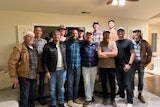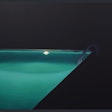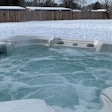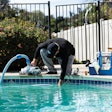In today's rapidly changing business climate, spa and pool retailing is still dominated by locally owned stores run by families. Whether you call them mom-and-pop stores, independent retailers or "the little guys," they've managed to stay afloat in an age where many specialty retailers are being gobbled up by larger, national companies. It's happened with hardware, greeting cards, clothing, books and coffee, just to name a few.
But while the industry's retailers have managed to stay small, local and independent, the distribution end of the business is growing increasingly centralized. That's either a good thing or a bad thing, depending on whom you ask. Some cite increased professionalism and access to a wider range of parts and products as reasons to welcome the change. Others bemoan the loss of the personal touch that comes with buying from someone you've known and trusted for years and who knows what you want before you need to ask. All will agree, though, that despite the dwindling ranks of the indie distributor and growing presence of SCP and larger regional distributors, the little guys will always have a place in the industry, as long as they're aware of the challenges and how to manage them. The keys for them to remain competitive are simple, and mirror the way spa and pool retailers manage to battle the big boxes: Focus on customer service and find a niche.
"They're performing a major function. They're critical," says Don Dahowski, a spokesperson for the Manufacturers Alliance For Choice, a group of manufacturers that's pooling its resources and selling its members' products to distributors in packages (see sidebar page 84). "Whether we call them mom and pops or independents or regional distributors — they're all critical. We are in a seasonal business and you must get that product to those people today. Not three weeks from now. And no manufacturer can afford to inventory all those products that are pushed out in six months. So you have to have a wide distribution network to take in products."
Finding A Niche
Gary D. Rice is the CEO and sales manager for Central Distribution, a nationwide distributor of pools, pumps, filters and more based in Salem, Ohio. He remembers 20 years back, when his company started in distribution and SCP was a few years from its inception and subsequent rapid growth.
"They were unheard of, but eventually they just bought everybody up," Rice says. "Fort Wayne, Heldor, Cascade Industries were all regional suppliers. They're gone. Everyone got bought up or put out of business.
There are some new ones, but none of the old ones are still around here. All were bought up by somebody, and not necessarily SCP.
"I could see the writing on the wall 30 years ago that there were some items you didn't make any money on. Chemicals are a dog-eat-dog business, so we don't do chemicals at all."
By choosing to forgo low-margin chemicals and not to be a full-line distributor, Rice says, his company has managed to survive and thrive despite dwindling numbers of companies like his.
"Even when the industry was 'younger,' you could see items that were sold through distribution that people were knocking each other out competing for," he says. "Many years ago there was a highly profitable solar cover business, but competition forced a lot of people out of it because they couldn't make a dime on it."
Rice sees the situation continuing, with even fewer small distributors in the future. He likens it to the country's general retailing trend.
"Ultimately, it's going to be like Wal-Mart," he says. "SCP comes in and low balls the stuff and the smaller guys either have to sell to them or they're forced out of business. That's the big guy eating the little guy."
Still, Rice holds out hope for his company and others like it. "There's always been a place for the specialty guy. That's been our niche," he says. "Price, quality and warranty are big things with us. They can call us with a question and we'll do the research and get back to them right away."
Another distributor that's found a foothold in the niche market is Aquatic Parts Company of Bloomfield, Conn.
"We sell replacement parts for all pool and spa items and act as a central distributor for Baystate Pool Supply branches," explains Ed Barney, general manager. "For years, nobody paid attention to parts. They just wanted to take care of the big items. Parts are a pain in the neck, but if you do it right you can support a business with them."
Like Rice, Barney stresses the importance of relationships in maintaining one's place in the distribution channel.
"You'll find our owners traveling throughout the whole territory, taking clients out to dinner, etc.," he says. "But who owns SCP. A bunch of stock holders. They're not playing with their own money.
"A lot of dealers like those relationships. They want to talk to the guy that writes the paychecks."
Banding Together
Another way for smaller distributors to survive when companies around them succumb is to band together. That's what the 25 members of the Wholesale Independent National Distributors Organization, or W.I.N.D.O., did. Comprising 25 member companies with a total of 70 branches in the United States and Canada, the group covers "a good part of the U.S.," says Liga Zebauers, executive director for the group, which was established in 1989.
Unlike Aquatic Parts Company and others like it that have carved out identities as niche distributors, W.I.N.D.O.'s member companies take SCP head on. It's a requirement that all operate as whole-line distributors.
"They all tend to be regional, but they have different branches," she says. "Imperial, out of Latham, N.Y., starts in New England and goes into the mid-South. Adcock is also from New England, but they just opened a branch in Louisiana." Others, though, operate in a smaller radius, which helps them in the customer service department, Zebauers explains.
"The catch phrase we use here is, 'Big enough to serve, small enough to care,'" she says. "We also find that there are always specific geographic business needs that we can handle.
Smaller companies can react quickly to a smaller regional need."
Zebauers cites the northeastern United States and its abundance of vinyl liners, or the popularity of heat pumps in Florida. "That's what makes us all successful, being able to react to things," she says. "It's easier for us to research new items, to find regional suppliers, that sort of thing."
Part of what makes the group work is the willingness to exchange information among companies and the association's focus on supplying its membership with solid business education, she adds. Toward that end, W.I.N.D.O. brings in speakers who address reducing freight costs, product liability and other issues designed to help members become better businesspeople and better serve their customers.
"We always tell them, 'If your dealer succeeds, then you succeed, too," she says. "It's just a more personalized way of looking at things."
Family Affair
Perhaps the biggest factor in survival for the smaller, family-owned distributor is, well, the family itself. Too often socalled mom-and-pop shops close down despite doing well enough to survive and even thrive, according to Dahowski.
"A lot of the kids don't want to get into that business now," he says. "So the mom-and-pop is maybe predestined to close if there aren't children to follow through. If you look at the successful ones today, they're that way because the family stayed in it."
As for the rest, Dahowski and others see further difficulties. If it's not SCP, perhaps another distributor will begin a similar expansion and gobble up smaller competitors.
"Somewhere along the line, instead of having 400 distributors or whatever, there may be 20 'brand name' distributors," Dahowski says. "But it's really tough to see what is going to happen in this distribution system.
"There are still some of those mom and-pop distributors out there that are doing very well and who function on close personal relationships, but it's gotten very competitive. And the builders themselves are out shopping for better pricing, so the loyalty issue has somewhat diminished with builders looking at ways to become more competitive themselves."
Branding
Another way some distributors are setting themselves apart is through clever marketing.
"Baystate is trying to create their own branding with the Omega line of chemicals, above-ground pools, solar blankets and other products that are exclusive to Baystate," he says. "We started that a few years ago and that's been going very, very well." W.I.N.D.O.'s members have a private chemical line, Protech, that Zebauers says has also been well received and which the organization will probably expand on in the future.
Still, most agree that the independents' best asset is their size, which allows them to research new products and suppliers and to do business on a more personal level than the biggest distributors can.
"I don't know what SCP's philosophy is, but I think the ability to react and the relationships are things larger companies just don't have," Zebauers says. "There's always going to be people who want that level of customer service and someone who knows their business and has a very hands-on approach.
"And there's always a need for alternatives."
Banding Together
Manufacturers pool resources and offerings.
IT'S NOT HARD to find people in the industry who yearn for the old days, when the distribution channel was less-centralized. Competition is a casualty of the new landscape. So, they say, are the personal touch and local flavor.
One guy who you won't find complaining, though, is Don Dahowski. He's a spokesperson for the Manufacturers Alliance For Choice (MAC), a group of manufacturers in the vinyl-liner pool market that have decided to work together for their common good and for the good of the industry.
"We were just talking about, basically, what's transpiring in the industry and how it's going to impact the industry favorably or unfavorably," he says. "And we began to see that there was a need to counterbalance what was being developed in the industry as far as distribution.
"SCP bought 40 percent of the Latham Acquisition Corp., which is heavily vinyl-liner oriented. What began to surface was there wasn't any other place where distributors could go and get a full product line. So we pulled all these companies together under the name MAC to do that." Dahowski is careful to point out, though, that he feels SCP's growth has been good for the industry.
"What they did is open the industry's eyes and show everyone that you can be profitable," he says. "All we're trying to do is not let them dominate everything. Let people have a choice. That's what the American business world is all about."
The five companies in the group — Cardinal Systems, Fabcote, Novelle Pools International, Pen Fabricators, and Quaker Plastics — are still run as separate companies, but they are working to sell their products in a package through distribution.
"But besides a product, this partnership is offering tremendous financial resources," he explains. "Before, if one of the five companies had to spend the money to build a product line equal to [the one available through SCP], it would be a tremendous hardship. So the five companies just pooled some of our monies. So now Quaker is building a whole complete line of fiberglass stairs. For Quaker to do that by themselves would be a tremendous expense, because the molds can run anywhere from $100,000 and up to get it ramped up. And we're coming out with 17 for this year."
Distributors that buy more pieces of the product line will be rewarded, Dahowski says, though each company will continue to sell its products through distribution independently.
"We think we need to do this for the good of the industry and for the good of the distribution system," he says. "Because distributors are critical to the industry. So we're spending money to round out our line and we'll continue to do that so distributors can say, 'OK, I don't need to buy that complete line from company X. I've got choices.'"
—B.K.











































